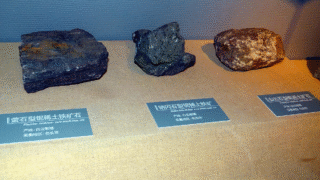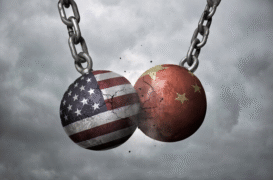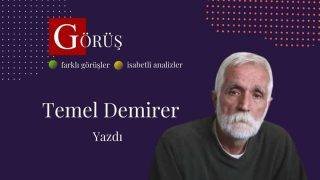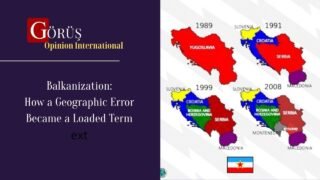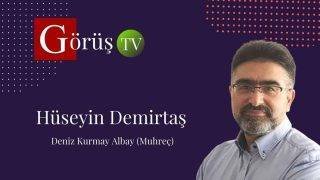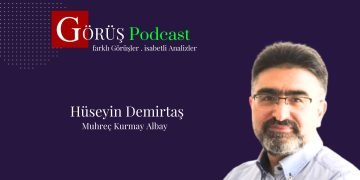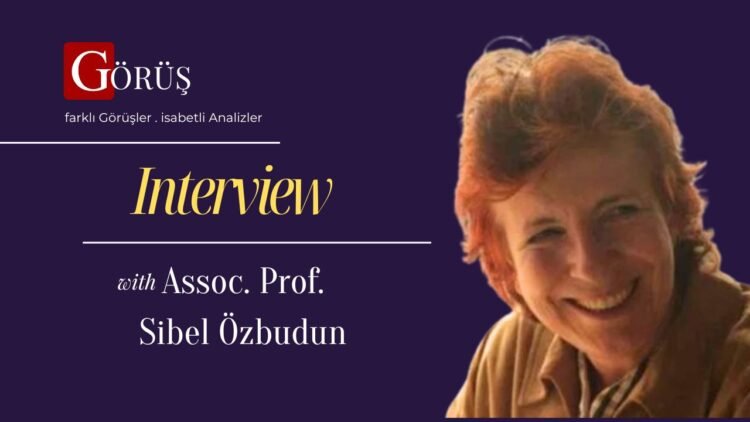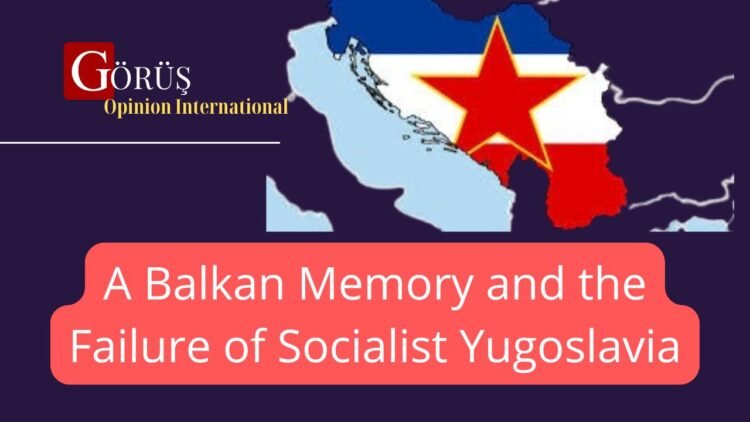
Rather than fighting the last war, as the old axiom goes, are military leaders more susceptible to fighting the wars of their favorite fiction novels?
Fiction is “the only medium through which we can discuss the majority of the problems which are being raised in such bristling multitude by our contemporary development,” the essayist H.G. Wells wrote in 1909. Fiction helps us imagine a radically different future. This is especially true when it comes to envisioning future wars. Fiction primes the imaginations of military and political leaders when they face real world military conflict. As a barometer of conventional political or military thinking going into crises, if not also a latent contributor to the mindset of leadership, fiction is at least as important as “hard” military analysis such as found, for example, in net assessments written at a more abstract level.
The reason for the impact is simple: Fiction and military analysis both have to be “bought” by their respective customers or they lack relevance. Given that human understanding from the beginning of time has been based on storytelling (a good current example would be the obsession of the media and political campaigns with the concept of a good “narrative”), rather than cold scientific analysis, it should not come as a surprise then that fiction can have an impact on military and foreign policy decision-making.
Recent academic research supports this assertion. For example, two scholars argued in a 2017 peer-reviewed article titled “How Popular Culture Matters for Images of International Relations” that the impact of “canonical academic sources” has been exaggerated, while the potentially great influence of popular culture on mass and elite audiences in international relations has been ignored. A 2015 paper suggested the existence of “positive relationships between exposure to a narrative and narrative-consistent beliefs.”
Fiction Can Help Reinforce Already Held Beliefs
While causal relationships between a work of fiction and its influence on a decision-maker are difficult to establish, there is a good case to be made that at the very least fiction can help reinforce already held beliefs and ideas among men and women in power. Here, five brief examples shine some light on the potential impact of works of fiction on warfare, military policy decision- making, and the future of war.
First, while the Italian Giulio Douhet is known as the author of the first major study of air warfare (Il Dominio dell’aria), it is less well known that his idea was only popularized and picked up by military thinkers across the world once he published La Guerra del 19- (The War of 19-), a 1930 fictional account of air war between Belgium and France against Germany. Strategists read the story with great interest. It convinced politicians to fund the establishment of the first independent air forces in Europe.
Because of Douhet, air power was generally overestimated in the interwar period (“the bomber always gets through,” the 1930s axiom went, for example, in Great Britain) and was a contributing factor to western European appeasement politics.
Second, in the 1930s Isoruko Yamamoto, chief strategist of the Imperial Japanese Navy, read The Great Pacific War. In the 1925 novel by the British writer Hector Bywater, the Japanese employ a strategy of surprise attacks against U.S. naval forces in the Pacific. The book impressed Yamamoto so much that he called on the writer during a visit to London in 1934 to discuss naval strategy.
The book was translated into Japanese and for a time became required reading for Japanese Navy officers. Although the book did not cause Yamamoto to plan a surprise attack on U.S. forces, the novel reinforced the admiral’s already held conviction that a decisive battle might still produce a favorable strategic outcome for Japan, even against a superior enemy like the United States.
Third, one of John F. Kennedy’s favorite books was From Russia With Love, which he passed on to then-Director of Central Intelligence Allan Dulles. When he met the author of the spy novel, Ian Fleming, in 1960, Kennedy asked him how he would get rid of Cuban leader Fidel Castro. Fleming suggested covert operations, including dropping pamphlets that claimed that Castro’s beard attracted radioactivity. The CIA acted on all of Fleming’s proposals.
It is fair to assume, then, that JFK’s infatuation with James Bond novels contributed to his affinity for Special Operations Forces, like the Green Berets, and various absurd CIA plots. JFK put his trust in the CIA during the Bay of Pigs Invasion of Cuba and also relied on the Green Berets to help turn the tide in the burgeoning conflict in Vietnam in the 1960s, arguably two of the young president’s worst foreign policy decisions.
Fourth, Tom Clancy’s novel Red Storm Rising appears to have influenced Ronald Reagan at a crucial juncture of the Cold War. The novel depicts a war between NATO and the Warsaw Pact with conventional weapons and a successful Soviet occupation of Iceland. In preparation for the 1986 Soviet-U.S. summit in Reykjavik, Regan read the book and even recommended it to Margaret Thatcher as providing “an excellent picture of the Soviet Union’s intentions and strategy,” according to a memo by the then- foreign policy adviser to the British prime minister.
In that way, the book contributed to the idea that the Soviet Union would never voluntarily give up its Eastern European empire and could successfully dominate the Atlantic Ocean (which in turn led the Reagan administration to increase naval spending). It also led to an increase in conventional U.S. military spending overall since the book showed that a third world war without crossing the nuclear threshold was possible.
Finally, Peter Singer and August Cole’s 2015 novel Ghost Fleet about a future war between China-Russia and the United States has been the most influential work of war fiction in the United States in recent years. It popularized the idea that the over-reliance of U.S. forces on advanced technologies is vulnerable to Chinese and Russian asymmetric attacks. The book also pushed for developing simpler, more agile, systems including drones, rail guns, and lasers, rather than big, expensive platforms like F-35 fighter stealth fighters.
The book is accentuating trends in U.S. government centered on imagining future conflicts. One of the conclusions from these thought experiments is the conviction that advanced, more resilient U.S. weaponry is the best tool for confronting nascent Chinese expansionism and Russian revisionism.
The impact of Ghost Fleet cannot be exaggerated today in the U.S. military establishment. Influential American generals and admirals have endorsed the book and even military scholars report that it changed their opinion on world politics and future military conflict.
As the paper “How Popular Culture Matters for Images of International Relations” argues: “Ghost Fleet’s reception suggests something about assumptions within the military establishment that would be hard to discern from white papers alone – and our theory indicates the novel may be more effective at converting readers than conventionally presented arguments.” This not only goes for novels, of course. As I have argued elsewhere, the war (or rather anti-war) film Patton did not convert but at least reinforced Richard Nixon’s decision to invade Cambodia in 1970.
The Dangers of Relying on Fiction as a Guide
War fiction has historically reflected both deep-seated fears and overt hopes about warfare, not only on the part of military and political leaders, but also society overall. For example, it is no coincidence that Ian Fleming’s You Only Live Twice was published in 1964, the same year that China first tested a nuclear weapon. The plot involved an unnamed criminal organization (a thinly veiled Red China) trying to provoke a nuclear war between the Soviet Union and the United States through false-flag operations. As declassified U.S. government documents show, the United States was genuinely concerned about China’s ballistic missile subs conducting just such a covert operation at the time and as a result considered a preventive strike against Beijing’s nuclear weapons facilities. The reality, however, was that China harbored no such plans.
Nuclear weapons particularly play to an innate fear. Future war fiction, especially in the English-speaking world, tends to use super-weapons and surprise attacks as the two major plot devices. This perhaps began with the 1874 novella The Battle of Dorking, which describes a fictional sneak attack against Britain by a German-speaking country using super-weapons (“fatal engines”). Both are also the two predominant subjects in military analysis trying to predict future wars. The reason for that is simple: They are the best two ways of illustrating the consequences of inaction and complacency by political leaders.
Yet these offer a one-sided picture. As Lawrence Freedman argues in his book, The Future of War: A History, “Far less thought was given to the consequences of a first blow that failed to floor the opponent, or how a war’s course might be increasingly determined by non-military factors, including the formation and breaking of alliances, underlying economic and demographic strength or the public’s readiness to make sacrifices and tolerate casualties.”
Enjoying this article? Click here to subscribe for full access. Just $5 a month.
This points to a major problem with fiction as a guidepost for the future. It is too readily assimilated when it confirms existing thought patterns of political and military leaders about future military conflict. Fictional speculation that delves into more uncomfortable but latently exigent topics is sometimes overlooked. For example, Arthur Conan Doyle’s 1914 book Danger about unrestricted submarine warfare was dismissed by military strategists, as was Jan Gotlich Bloch’s 1898 book prophesying trench warfare, Is War Now Impossible?
Furthermore, Graham Greene’s The Quiet American accurately predicted that the U.S. involvement in Vietnam was doomed to failure, yet to little avail. And the 1990s movie The Siege presciently outlined some of the moral and political predicaments, including government overreach and militarization of domestic and foreign policy, that followed 9/11 and the war on terror; however, policymakers largely dismissed it at the time.
Some works also just get future wars completely wrong. For example, Bywater in The Great Pacific War did not foresee the importance of aircraft carriers and air power in general for naval warfare. He also failed to recognize the significance of the torpedo and submarines for military operations. Moreover, he wrongly, as it turned out, anticipated the use of chemical weapons in the fictional war.
In that sense it is important to recall what Doc Brown tells Marty’s girlfriend Jennifer in the last scene of the ultimate film of the Back to the Future trilogy: “Your future is whatever you make it.”
In short, we have a powerful influence in constructing any future of war narratives. If that narrative emphasizes the transformational nature of technology, as it does in today’s Zeitgeist, inspired by the Silicon Valley gospel of technological solutionism, the same way that, for example, pre-World War I narratives misguidedly emphasized the offensive spirit of troops, it may turn out to be a self-fulfilling prophecy regardless of the actual reality.
In other words, rather than fighting the last war, as the old axiom goes, military leaders may be more susceptible to fighting the fictional wars of their imagination, influenced by war fiction, instead of the conflict unfolding in front of them. This has led and will continue to lead to poor choices with possibly disastrous consequences when it comes to questions of war and peace. Consequently, bad military fiction can have a more detrimental impact than just giving a bad reading experience. As Freedman cautions in his book, “These works of imagination will often have value in helping to clarify the choices that need to be faced and at times will even turn out to have been prescient. For that reason, many will deserve to be taken seriously. They should all, however, be treated skeptically.”
The original source of this article is The Diplomat, December 07, 2019

